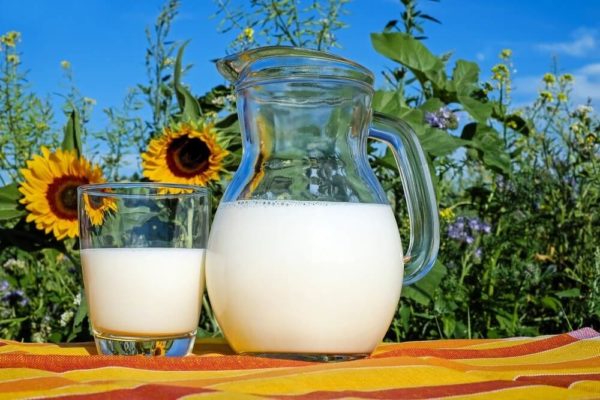Among myths and truths, opinions about milk consumption are interwoven, in general about dairy products, which also include cheese and yogurt that are rich in calcium and protein according to conventional approaches on the subject, constituting essential nutrients for bone development and growth.

Truth: According to some experts, the consumption of milk is especially very important because this food has essential amino acids, which make it a basic nutritional source, in addition to containing a high percentage of proteins with a great biological value and other components that strengthen the digestive, immune and cardiovascular system.
Truth: The man is the only mammal that, after the period of breastfeeding, continues to consume milk since animals after weaning have a tendency to lose the enzymatic activity that facilitates the digestion of milk. But by getting it from other mammals, the man has become the only one who continues to consume it even after an adult, what has provided him with this capacity, and that is the reason why the habit of consuming it has been maintained.
With reference to this point, the Department of Biochemistry and Molecular Biology II of the University of Granada in Spain argues that “more than 1000 years ago the man domesticated animals and could incorporate milk into the diet; something that was a great evolutionary leap for the man”.
But, apart from these truths maintained for centuries and that today remain true, there are some approaches which are only myths in the opinion of many experts, and then we will explain why they are false:
Milk makes people gain weight: This statement is false because milk consumption provides many nutrients with a low caloric content; in fact, whole milk only has 3.5% fat, while semi-skimmed milk has a fat percentage of 1.8% and skimmed milk only 0.8%. On the other hand, this small percentage of fat fulfils a very important function, such as transporting some of the fat-soluble vitamins that it provides; so it is totally false that it makes us gain weight and that the consumption of milk affects us.

Milk causes allergies or intolerances: These statements are false if we start from the premise that first, allergy and intolerance are two different things. Allergy originates when there is a reaction to cow’s milk protein, and intolerance is caused by the sugar that milk has called lactose. In these very particular cases in some people, there are alternatives; allergic people can consume hydrolysed milk, while those who suffer from intolerance can consume lactose-free dairy products.
We take these statements as false because only a minority percentage of people suffer from allergies and intolerance caused by some components of milk, which does not mean that it is an unhealthy food or not suitable for consumption. Therefore, milk consumption cannot be considered as a cause of these effects in the majority of the world’s population; so enjoy the benefits it brings to the body.
Another point that must be clarified here is that the geographical origin of people influences the possibility of being lactose intolerant. For example, in countries that do not have a pasture tradition, the percentage of lactose intolerance increases, such as in Africa, Asia and South America, but in regions such as Australia, northern Europe and the United States, the percentages are very low, while Finland stands out for cases of congenital intolerance which prevents babies from digesting milk from the moment of birth.
Milk consumption increases the risk of cancer: This statement is considered a myth since there is no definitive or conclusive evidence that reasonably associates milk consumption, which is 1 and 3 daily rations of milk or its derivatives, with this serious illness; although you should avoid ingesting dairy products with more fat.

In relation to this, we must present the information derived from a study done by Peter Campbell, from the American Cancer Society, and that was published in the “Journal of Clinical Oncology” where it is concluded that a diet rich in milk can enlarge the life of people suffering from colon cancer, while Donald Abrams, from the University of California, argues that it is probably not only the consumption of milk but a complete diet provided to these patients which positively influences their health status.
Milk consumption produces mucus and makes asthma worse: It is false since there is no conclusive evidence to confirm that this happens or that it causes airway problems.
However, we should also mention that some recent studies, such as those of the Harvard University School of Public Health in the United States, conclude that although milk is a food that provides a good amount of calcium, it is not either the only or the best possible source, adding that the best way to develop strong bones is by exercising, maintaining moderate milk consumption and, in general terms, leading a healthy lifestyle.

Likewise, the Harvard School Nutrition Guide emphasizes that vitamin D can be obtained from juices or soy milk, and protein from beans and eggs. Even in a study published by “Annals of Internal Medicine” in 1998, it is assured that consuming high amounts of retinol (Vitamin A) present in milk can cause bone damage, recommending moderate consumption.




ALFA